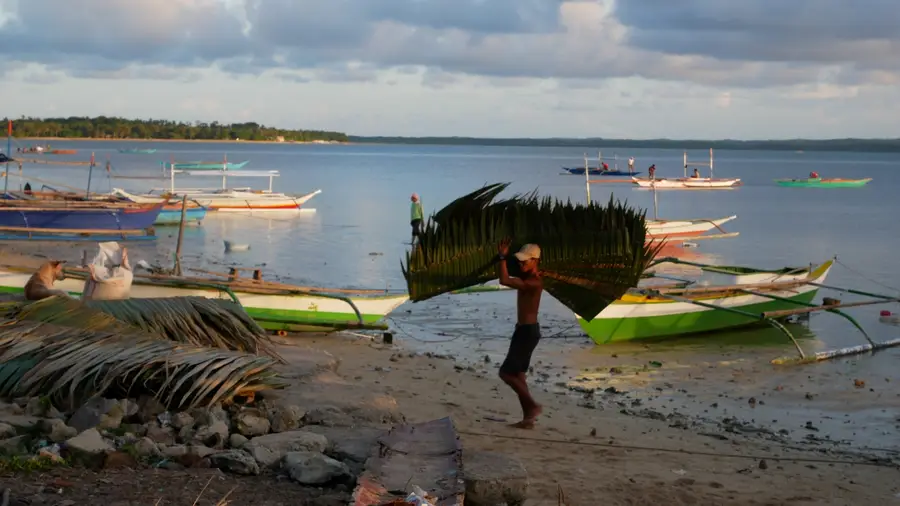
USAID Energy Secure Philippines
During a climate-related crisis, people need to know that they can continue to pump their water and charge their cell phones, and that recovery will be swift. A 2022 Intergovernmental Panel on Climate Change (IPCC) report warns that small islands will increasingly face a larger proportion of intense tropical cyclones, devastating storms, rising sea levels, and other impacts, affecting both natural and human systems. Island nations, like Barbuda in the Caribbean, Maldives in South Asia, and Fiji in the western Pacific, face some of the most severe impacts of climate change.
Although these geographically diverse island nations may have drastically different economies and cultures, they often face similar energy challenges, such as limited access to affordable energy supplies, high dependence on imported fossil fuels, high costs to electrify remote communities, lack of private sector investment, and difficulty in attracting technical assistance and advisory support because of their small market power.
Ramping up investment in clean energy solutions
Investing in a well-functioning clean energy sector that is secure, efficient, and resilient, can reduce long-term economic damage from climate-related crises and shorten recovery times. Investments to protect the energy sector from system shocks can have ripple effects across island nations in recovery, supporting healthcare, food systems, communication, and sanitation.
Based on our experience implementing USAID-funded energy programs in over 60 countries—including small islands in the Caribbean, South Asia, Africa, the Pacific, and the Philippines—we’ve seen first-hand how island nations can build a greener and more resilient energy sector. Below we outline some of these examples and recommendations.
Building knowledge of, and best case uses for, renewable energy technologies
A cornerstone of resiliency in the face of climate change is reducing the reliance of island communities on electricity from fossil-fueled grids and generators, which are expensive to operate, as the fuel often must be shipped in at great expense and can be subject to price spikes when crises and disasters hit. Clean energy technologies are an increasingly cost-effective alternatives to fossil-fuel based energy sources.
Zanzibar, an archipelago off the coast of the United Republic of Tanzania, is home to 1.3 million people, and is largely dependent on the mainland for its energy needs. The reliance on mainland energy makes Zanzibar vulnerable to electricity failures or blackouts. The Power Africa East Africa Energy Program (EAEP), in collaboration with the World Bank, partnered with government and regulatory stakeholders on a capacity building training program to help stakeholders understand best use cases for different renewable energy technologies and renewable energy procurement and operational best practices. This helped facilitate a competitive procurement process to expand affordable energy on the island and trained the local electricity company on battery storage ahead of a World Bank funded project to develop the island’s first renewable energy power generation plant with battery storage.
Using mini-grids for a more resilient energy sector
A national power grid can be infeasible for small island nations that are often spread across thousands of square miles of ocean. A central grid requires high capital and maintenance costs which is challenging for governments of small nations to afford or companies to realize a return on their investment. This can also result in high energy bills for consumers, many of whom can’t afford to pay for the power they use.
For many island communities, well-planned and operated mini-grids are a promising way to ensure resilient and reliable power. In the Philippines, the burgeoning tourist trade of Isla Verde makes a reliable and clean source of energy essential to this small island’s economy. Between 2015 and 2018, under the USAID Building Low-Emission Alternatives to Develop Economic Resilience and Sustainability (B-LEADERS) program, RTI helped build a 32-kilowatt solar photovoltaic mini-grid that contributes to powering more than 300 businesses and households, as well as resorts, tourism facilities, and vital water services. Since its construction, the mini-grid has resulted in annual savings of $274 per Isla Verde household, money that can now go toward educational needs for children, food, or other household expenses.
The USAID Papua New Guinea Electrification Partnership (USAID-PEP) program rolled out a beta version of an electrification geographic information system (GIS) platform to show how the country’s population of around 9 million—spread over 600 islands—could benefit from expanding the electricity grid and from off-grid electrification and the distribution of stand-alone solar products, like mini-grids. The GIS platform identifies suitable locations for grid expansion, grid extension, mini-grid sites, and solar-home-systems sites to help facilitate public and private investment.
These examples show that off-grid energy solutions not only bring reliable energy to remote island communities, but they also help foster self-sufficiency, create income-generating opportunities, and decrease outlays for fuel.
Supporting locally led income-generating activities with renewable energy solutions
Expanding energy access through mini-grids and other renewable energy sources can also create new opportunities for communities and local businesses to expand their markets, create jobs, and enhance social impacts. For example, fishing is a common and popular industry in most island nations, supplying food and income to millions of people. However, lack of energy infrastructure to support cold storage of fish and drying of seaweed, for example, reduces the ability to tap additional markets, hindering economic growth and making communities vulnerable to the shocks and stresses of climate change.
Renewable energy solutions, particularly solar, provide an opportunity for island nations to expand their economy and achieve climate goals. Under the USAID-funded Energy Secure Philippines (ESP) program, a solar-powered, shared-services facility will include cold storage, production of ice and desalinated water, and drying of seaweed and fish. The integrated system promotes and accelerates the adoption of renewable energy in Calutcot and Gilutongan Islands while generating additional income from the sale of water, ice, dried fish, and seaweed.
Knitting island nations together for better renewable energy access
Given their remoteness both from major energy markets as well as distance between islands, facilitating better communication, coordination, and knowledge sharing to support a resilient power grid is an important component of any effort to expand access to affordable and renewable energy. For island nations, regional forums and networks provide access to a much bigger market, which can also create new avenues for attracting private sector participation.
We have seen this work in South Asia, where the USAID-funded South Asia Regional Energy Partnership (SAREP) program engaged with stakeholders from the energy sectors in India, Bangladesh, Bhutan, and Nepal, as well as the islands of Sri Lanka and Maldives, to share information about current energy innovations and cutting-edge pilot projects across the region, with the goal of improving access to affordable, secure, reliable and sustainable energy in these six countries. In Maldives, this will help accelerate next-generation energy efficiency (EE) in appliances and buildings and providing capacity building on energy auditing. In both Maldives and Sri Lanka, SAREP’s technical assistance and regional networks support utility modernization initiatives by promoting the deployment of smart meters and improving grid stability and reliability, accelerating the region’s use of innovative energy solutions and its transition to clean energy.
A brighter future for island nations
As climate change affects the very existence of some small island nations, they also have the most to gain from accelerating the adoption of affordable renewable energy. Doing so can help them build resilience to climate shocks, reduce greenhouse gas emissions, and lower the costs of importing fossil fuels.
Learn more about RTI’s energy for development work and Center for Climate Solutions.

